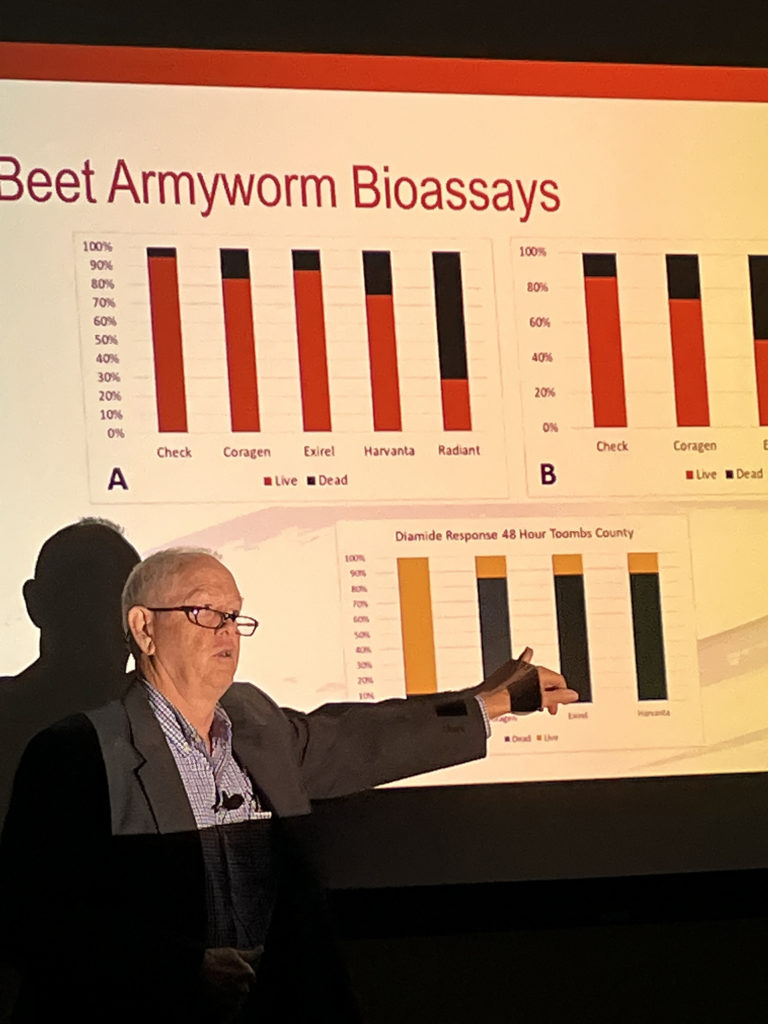By Clint Thompson
Insects are hard enough to manage if you are a specialty crop producer. The threat of a lack of pesticides due to regulatory enforcement is making something difficult even more challenging.

Stormy Sparks, University of Georgia (UGA) Cooperative Extension vegetable entomologist, discussed the outlook during the recent Southeast Regional Fruit and Vegetable Conference in Savannah, Georgia.
“The biggest threat right now, regulatory, is the Endangered Species Act,” Sparks said. “It’s not new. It’s just the more strict enforcement of it is new. Every product that is being registered is having to go through that scrutiny. All products, which are periodically re-registered, it’s like a 10-year cycle they’re supposed to follow, will have to go through it as they’re re-registered.
“What happens in the next couple of years with new products and re-registered products is going to set up how everything’s handled for the next decade to 20 years.”
The Endangered Species Act was established in 1973 and provides a framework to conserve and protect endangered and threatened species and their habitats in the U.S.
Certain chemistries have been banned by the Environmental Protection Agency, including most recently chlorpyrifos. Sparks said there is a petition to vacate registration of all organophosphates, not just chlorpyrifos. Sparks fears carbamate insecticides would be the next group to be targeted if the petition is successful.
“Some of the things that initially happened are very restrictive. I can’t see us surviving very well under those conditions. Things are going to have to change. But I had the same opinion when the Food Quality Protection Act came out,” Sparks said. “If you looked at what was in there, there was no way we were going to survive that. But reasonable minds got together, recognized that and figured out approaches that satisfied the requirements.”









